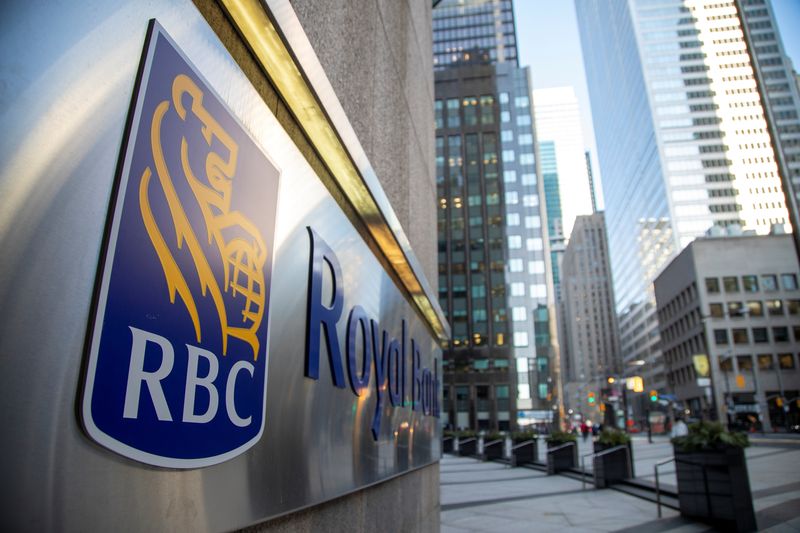TORONTO (Reuters) – Royal Bank of Canada will increase its prime rate to 2.7% from 2.45%, Canada’s biggest bank said on Wednesday, after the central bank raised its benchmark rate by 25 basis points.
The increase in the prime rate, which variable-rate mortgages are tied to, will take effect on Thursday, the lender said.
The Bank of Canada on Wednesday hiked interest rates for the first time since October 2018, to 0.50% from a record-low 0.25%, and said they would need to rise further despite increased uncertainty following Russia’s invasion of Ukraine.
Variable-rate mortgages have grown in popularity among home owners, thanks to the widest gap https://www.ratehub.ca/historical-mortgage-rates-widget between them and fixed rates — which have been climbing alongside bond yields that have risen in anticipation of tighter central bank policies — in 3-1/2 years.
Variable loans made up 28% of outstanding mortgages in December, the highest proportion since at least 2016, central bank data show. They have accounted for over half of new mortgages since July and were at 55% in December, the highest level since the Bank of Canada began tracking the data in 2013.
“More Canadians selected variable rate mortgages this past year,” said James Laird, co-founder of mortgage rate comparison website Ratehub.ca. “We can expect more Canadians’ rates to go up and for their mortgage payment to be affected than in a typical rising rate environment.”
Still, the 25-basis-point increase in prime rates is unlikely to have a significant impact on housing demand, Laird said.
Rate hikes are more likely to bite when they rise 1 to 1.25 percentage points, although supply constraints and immigration-driven population growth mean the housing market is still unlikely to turn in favor of buyers, he said.
Higher mortgage rates, however, are good news for lenders, as they are expected to yield a much-awaited improvement in bank margins, which have been under pressure due to low interest rates.
Canadian banks cut their prime rates to the lowest level in a decade in March 2020 as governments imposed lockdowns and restrictions in response to the coronavirus pandemic. Easy credit has fueled a housing boom, with the average price surging 21% in January from a year earlier to a record.
Mortgages have accounted for nearly 90% of new credit since 2016, and lifted household debt to 177% of disposable income, according to Statistics Canada, making the country one of the 10 most indebted populations among nations in the Organization for Economic Co-operation and Development (OECD).
Canada’s central bank and financial regulator have repeatedly cited housing market imbalances and high household debt as the main financial vulnerabilities facing the country.
(Reporting By Nichola Saminather; editing by Jonathan Oatis)






















